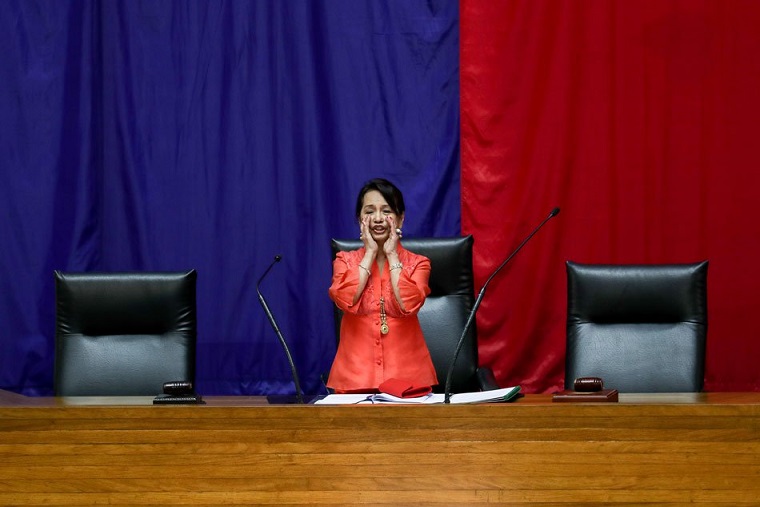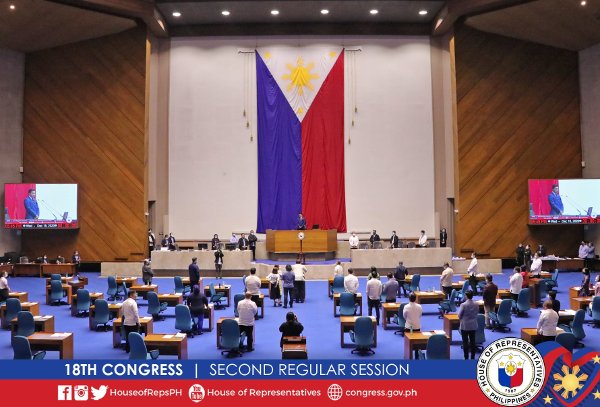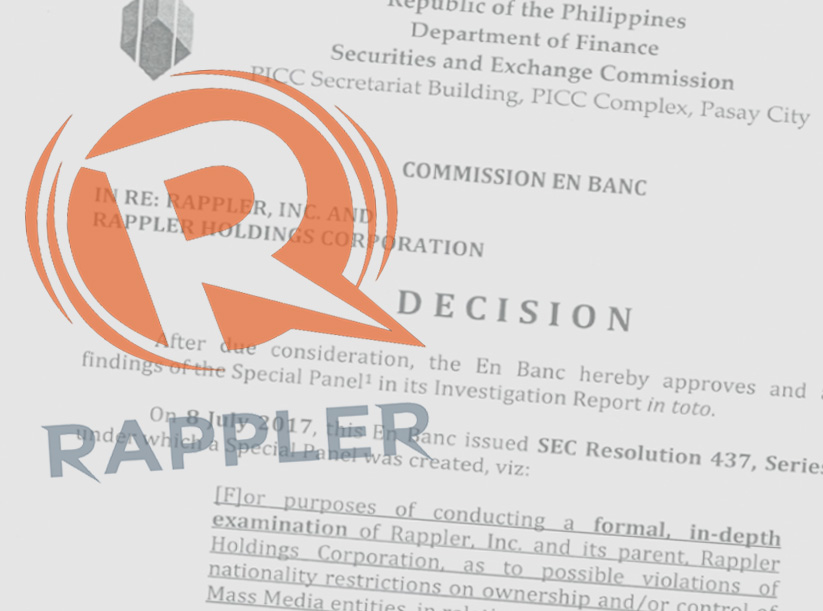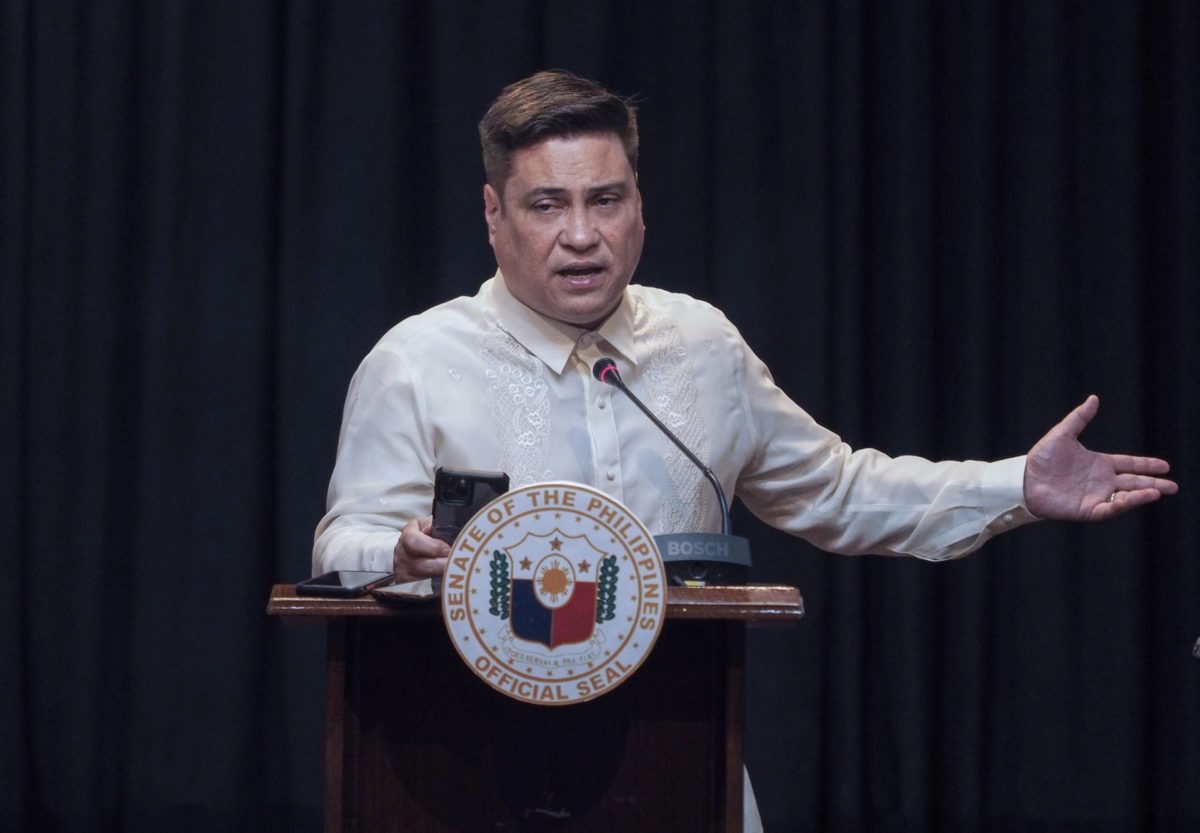Moves in the House of Representatives to insert the words “responsible exercise” in the freedom of speech part in the Constitution’s Bill of Rights is a revival of the same attempt made by the government of Gloria Arroyo in 2006.
Last week, Deputy Speaker Fredenil Castro (Capiz’s second district, informed the House of Representatives’ Committee on Constitutional Amendments of the proposal on Tuesday (January 16).
Castro proposed that Article 3, Section 4 of the Bill of Rights which states “No law shall be passed abridging the freedom of speech, of expression, or of the press, or the right of the people peaceably to assemble and petition the government for redress of grievances ” be reworded to “No law shall be passed abridging the responsible exercise of the freedom of speech, of expression, or of the press, or the right of the people peaceably to assemble and petition the government for redress of grievances.”
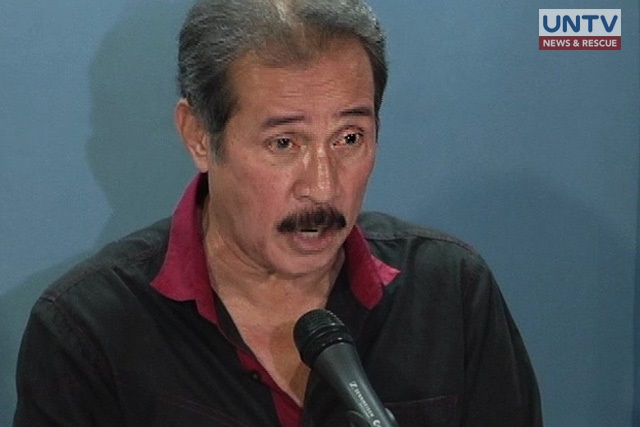 Deputy Speaker Fredenil Castro. Photo from UNTV.
Deputy Speaker Fredenil Castro. Photo from UNTV.
Magdalo party-list Rep. Gary Alejano asked who and how would “responsible” be defined.
Exactly my question 12 years when Arroyo’s Consultative Commission, which she formed to draft a revised Constitution, came up with this proposed provision in the Bill of Rights: “No law shall be passed abridging the responsible exercise of the freedom of speech, of expression, or of the press, or the right of the people peaceably to assemble and petition the Government for redress of grievances.”
Exactly what Castro is pushing for.
I’ll repeat the question I asked then: “But the proposed change in the freedom of expression provision strikes at the core of our basic rights as a citizen of a democratic country. The key change here is in the word “responsible.” Who will determine what responsible exercise of freedom of speech is? Who will determine what a responsible press is? Who will determine responsible petition for redress of grievances?”
It’s dismaying because reportssaid the proposed tampering of the press freedom guarantee in the Bill of Rights came from the Presidential Human Rights Committee Secretariat. What kind of Committee of Human Rights is that that is working to diminish protection of human rights?
I’d like to share here my report on the discussion of that repugnant proposal in the Jan 3, 2006 episode of Strictly Politics hosted by Pia Hontiveros (she is now with CNN Philippines).
Guests were twomembers of the Consultative Commission committee on Bill of Rights former Rep. Serge ApostolAtty. Romela Bengzon;Atty. Adel Tamano, then professor of law at the Far Eastern University, and Vergel Santos, director of the Center for Media Freedom and Responsibility.
Bengzon said the word “responsible” was put there to “enhance and focus”. She talked about investments not coming in, because investors always read bad news. She saidmore time and space shshould be allotted for “good news.”
Santos said there is no such thing as good news or bad news. There is only news. It’s good or bad depending on who views it.
Apostol asked what’s the problem of of the word “responsibility” when media people themselves invoke that word all the time.
Apostol said something shocking: proof that media can sometime be irresponsible is the high number of journalists being killed.
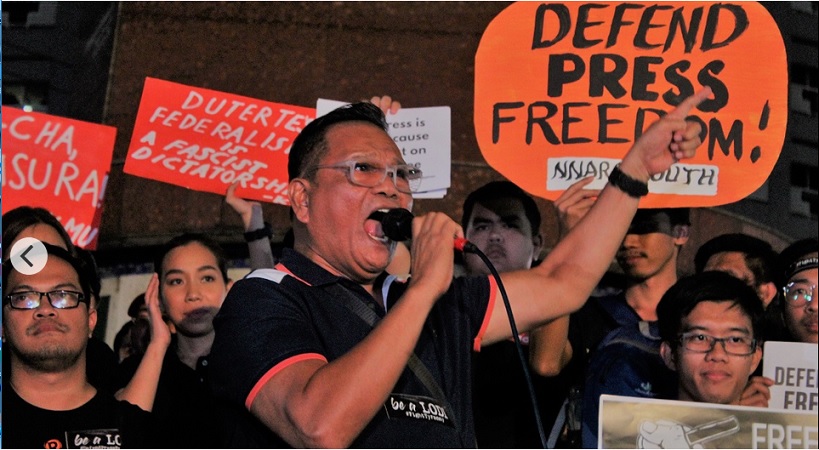 Movie director Joel Lamangan in a rally denouncing attacks on press freedom. VERA Files photo by Arianne Christian Tapao.
Movie director Joel Lamangan in a rally denouncing attacks on press freedom. VERA Files photo by Arianne Christian Tapao.
To attribute their killings to ‘irresponsibility’ is adding insult to injury. Pinatay ka na nga, ininsulto ka pa. Marlene Esperat, the journalist who was killed for exposing corruption in the Department of Agriculture Fertilizer fund, must be turning in her grave.
Tamano said changing the wording of that provision and adding the word “responsible” abridges freedom of expression.
He said that provision is part of the basic rights that gives substance to democracy and that has not been touched, tampered with for decades , in the American Constitution to which our Constitution is patterned. Our own Philippine Constitution has undergone several changes since 1935 but the framers respected and preserved that particular provision.
He said tampering with provision will create more confusion and disagreement.
The above discussion 12 years ago remains relevant today. More so now when the country’s leader is the main purveyor of disinformation.
